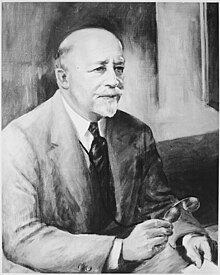User:Grace.boehm/The Negro Problem (book)
In Popular Culture
https://en.wikipedia.org/wiki/Community_(TV_series)
Stew and the Negro Problem, a group of four Baroque pop musicians, was named after the book.
Essays
Industrial Education for the Negro by Booker T. Washington
- Washington argues that the best method to uplift the Black race is to promote accumulation of hard, industrial skills, to improve their economic position.
The Talented Tenth by W. E. B. DuBois
- DuBois argues that the best method to uplift the Black race is to bolster the efforts and education of the most bright, talented individuals, that they might both represent the race and use those talents to then uplift the less gifted.
The Disfranchisement of the Negro by Charles W. Chesnutt
- Chestnut argues that the disfranchisement of African Americans is a violation of the U.S. Constitution, and goes into depth examining various laws promoting this disfranchisement, calling for political action.
- https://en.wikipedia.org/wiki/Disfranchisement
- https://en.wikipedia.org/wiki/Constitution_of_the_United_States
^ First Two Edits
Background
[edit]The Negro Problem and its constituent essays were written in the post-Civil War, Jim Crow era, when African Americans struggled with oppressive laws and systems meant to curb their rights. As white leaders in both the South and the North worked to promote white supremacy, Black leaders sought to redefine and improve their image and identity, through racial uplift ideology.[1] As such, the essays within The Negro Problem reflect this desire for Black uplift.

Booker T. Washington and W.E.B. DuBois, two of the more notable authors featured in The Negro Problem, had a long professional history both preceding and following the publication of the book. Their clashing ideologies lead to immense discourse between both the authors and those subscribing to their ideologies. For example, following Washington’s Atlanta address, now known as the Atlanta compromise, DuBois responded with his own address, touching on what DuBois believed to be the weaknesses in Washington’s argument. Later, while Washington delivered another speech, a man interrupted him, resulting in the man’s arrest. DuBois advocated for the man, while Washington held that he should remain in jail. Other such disagreements built between the two authors in the years preceding the publication of The Negro Problem. [2]
- ^ Gaines, Kevin. "Racial Uplift Ideology in the Era of "the Negro Problem"". TeacherServe. National Humanities Center.
{{cite web}}: CS1 maint: url-status (link) - ^ Harris, Abram L. (1923). "The Negro Problem as Viewed by Negro Leaders". Current History (New York). 18: 410 – via ProQuest.
